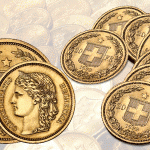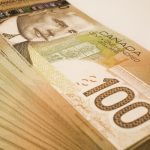US dollar tumbled to almost 2.5-week lows against the Japanese yen on trading Friday as expectations of FED tapering its asset purchases soon were dimmed and this influenced demand for the greenback.
USD/JPY slid to a session low at 98.61 at 5:20 GMT, the lowest point since July 11th, after which the pair consolidated at 98.88, down by 0.42% for the day. Support was expected at June 27th low, 97.56, while resistance was to be met at July 17th high, 99.94.
Wariness dominated investors decisions following the mixed reports, which came out from the United States on Thursday. The Labor Department in the country stated that initial jobless claims rose by 7 000 to reach 343 000 during the week ended on July 20th 2013. Results during the preceding week were revised up to 336 000 from 334 000 previously. Initial estimates pointed that the number of claims will reach 340 000. This fueled uncertainty over the future of Federal Reserve Bank’s Quantitative Easing, as yesterday in a report by Wall Street Journal it became clear that Federal Reserve policymakers probably intended to leave the scale of stimulus unchanged for now.
In addition, the Department of Commerce reported that durable goods orders in the United States rose by 4.2% in June in comparison with preliminary estimates of a 1.3% rise, while in May the value of the indicator was revised up to an increase by 5.2% from a 3.6% rise previously. On the other hand, core durable goods orders, which did not contain volatile components such as transportation, remained unchanged in June, compared to expectations that the indicator will show a 0.5% increase.
Meanwhile, earlier on Friday it was reported that Japanese Consumer Price Index (CPI), which excludes volatile elements such as food, but includes energy costs, rose by 0.4% during June on annual basis, entering positive territory for the first time since August 2012, when it improved by 0.2%. Preliminary estimates of a 0.3% increase were exceeded. Annual inflation in Japan showed the strongest rate of increase, 1.0%, during November 2008. Consumer Price Index (CPI) ex Food for Ku-area of Tokyo showed also an increase by 0.3% during July on annual basis in consonance with expectations, marking its third consecutive monthly climb. Japanese central bank projects that core consumer inflation in the country will rise to 1.9% annually during the fiscal year 2015, not taking into account the possible effects by the higher taxes on consumer spending, planned to be imposed in April 2014 and October 2015. Some experts, however, expressed their skepticism, regarding such forecasts, proposing that the general consumer price index in Japan will climb by 0.95% annually during the fiscal year 2015, as economys development at its current pace could be obstructed by increased taxes.
Elsewhere, the Japanese yen was trading higher against the euro, as EUR/JPY cross dropped by 0.52% to 131.15 at 7:48 GMT. GBP/JPY pair also lost ground for the day, erasing 0.58% to trade at 151.94 at 7:48 GMT.
Later in the trading day the United States was expected to release data on the final reading of University of Michigan Consumer Confidence index, as better than projected results may favor demand for the US dollar.





